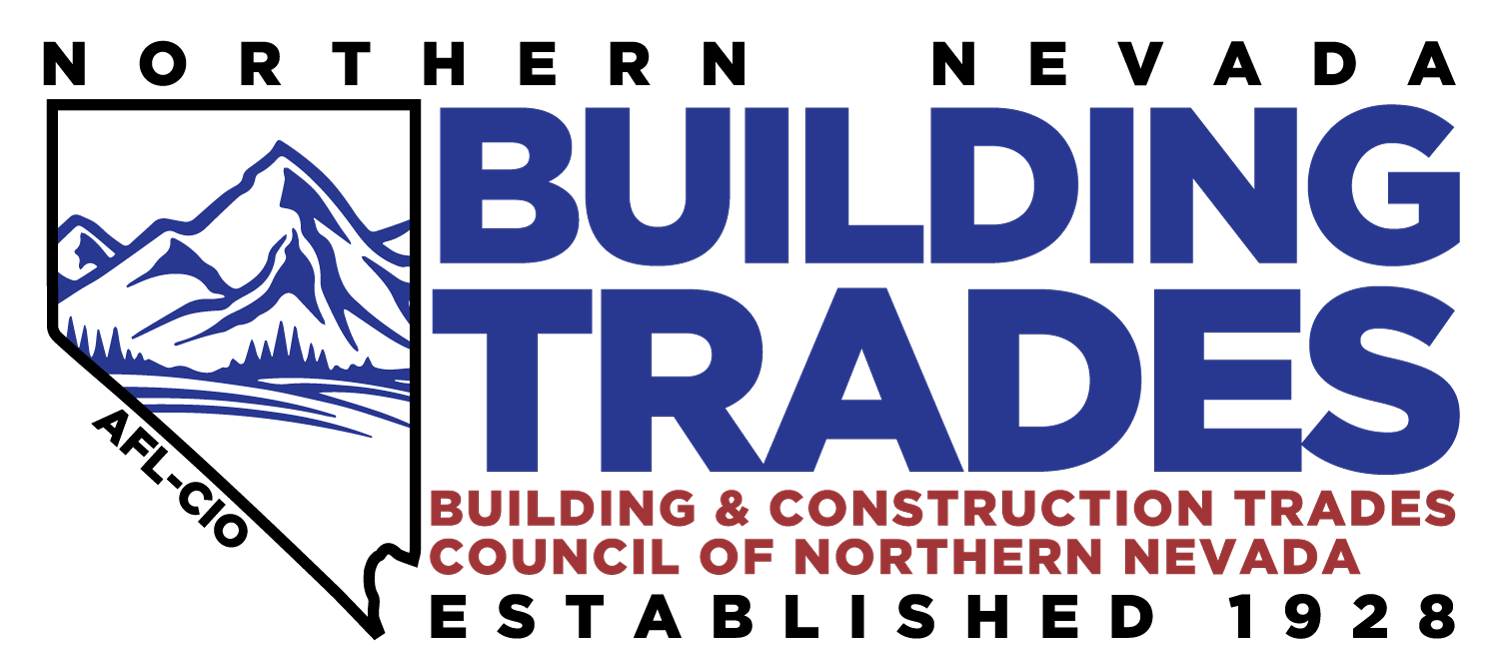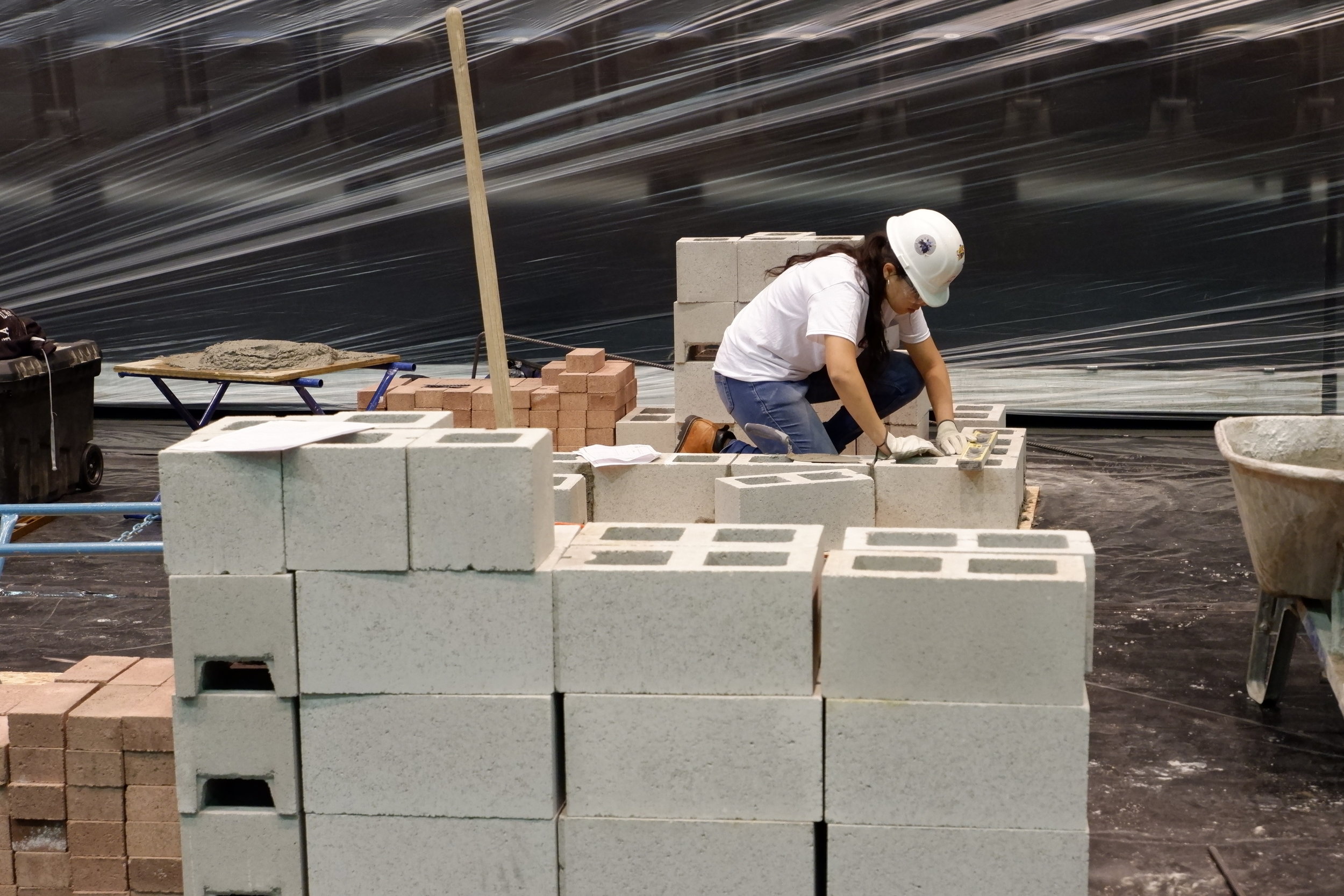Local industry leaders hope programs like SkillsUSA will help bring labor and trades back into the public spotlight as viable careers for the next generation, and fill big gaps in the local skilled workforce.
A sea of striking red blazers filled the streets in front of and around the downtown Reno Events Center on Thursday and Friday, April 12 and 13—young officers of the Nevada chapter of SkillsUSA, a national organization that helps teachers and industry leaders to prepare high school and college students for careers and leadership in technical, skilled, and service occupations.
Last week's championship event brought students to Reno from around the state together to compete in trade skill tests like carpentry, plumbing, electrical wiring, sheet metal, and more. Students worked with identical sets of plans to build out a project in teams or individually. Carpentry students worked in teams of four to build a tiny house on-site, the electricians put students work wiring a residential booth with switches, receptacles, and doorbells to code, and the plumbers had mock wall units set up for students to outfit with a plumbing system.
"We set the kids up with a mockup of what would be a typical installation out on a housing project," says Randy Canale, apprenticeship coordinator with the Plumbers and Pipefitters Local 350 in Sparks. "Today they're roughing in a residential bathroom that has a kitchen on the other side of the back wall."
Canale adds that the SkillsUSA program not only helps students get exposure to the myriad skills required in the trades, but if they should make the choice after graduation to pursue a career in skilled labor, having that experience is a great credential when it's time to apply for apprenticeship programs.
"When we're interviewing apprenticeship candidates and we see that they've been through the SkillsUSA program, we know they've at least had a good introduction to the trades," he says. "It lets us know that they know what to expect, they know their hands are probably going to get dirty, they have a pretty good idea of safety, and they know that they have to work. When we see they've had that experience, we know this isn't somebody who just saw an ad in the paper, they have an active interest in the trades. That counts."
Reed High School Sophomore Chloe Reese joined the SkillsUSA program in her freshman year, inspired by her older brother's love for the program.
"I was encouraged by my Career and Technical Education (CTE) teacher to join SkillsUSA, which interested me because my older brother went through the program and he liked it a lot. So I was curious about it, and it turns out that I like it a lot too," she said. "I've learned a lot of trade skills, like welding and machining. I've learned how to complete projects using plans. It's fun, and those are valuable skills to have."
Students who win at the state level go on to the SkillsUSA National Championships in Louisville in June, where they'll compete for the top spot, and prizes like scholarships, cash, and tools.
Skilled workforce training is a triple win for schools, local industry, and the community. Studies have shown that students involved in Career and Technical Education (CTE) programs are more likely to attend school and show motivation, and more likely to have higher employment rates and higher wages after graduation than those who didn't take part.
Dr. Dana Ryan, Director of Washoe County School District Signature Academies & Career and Technical Education, says that not only does training in trade and technical careers offer students who don't see themselves as candidates for post-secondary education a solid career path, today's CTE programs are not yesterday's vocational programs—they're a viable alternative to college.
"CTE isn't just about career training," says Ryan. "These programs include rigorous, high-level academics. Our kids studying construction are also studying calculus. We're asking them to be successful in geometry and trigonometry."
Currently half of all high school students in the Washoe County School District—about 9,000—get exposure to technical career education. And still it's not enough, according to Ryan, who believes that the U.S. is the midst of a cultural paradigm shift around ideas about work, the likes of which we haven't seen for many decades.
"It's turning on its head the notion that a 4-year college degree is the primary ticket to success," she says. "That's largely because of the way we're approaching innovation. There are big and varied opportunities now for skilled labor now, which doesn't look the way it used to look. Being a member of the skilled workforce today means you have to be a critical thinker. You have to be creative."
Pair that shift in career thinking with the industrial and economic overhaul that northern Nevada has seen in the last five years, and the region is especially well-positioned to take advantage of the school district's increased focused on career and technical education. But the numbers are coming up short.
"If every one of the nearly 20,000 high school students in the district graduated ready to take a job in the skilled workforce, we still wouldn't have enough for what we're going to need fill demand in the near-term," she said. "This is creating pressure on the on industry, but it's also giving credibility back to the idea that you can graduate from high school with a diploma and some skill certifications and now you're prepared to go out and get a living wage job, and when you get that job, now there are opportunities for you to move along a good career path, get more schooling if you want to, and continue to grow. We're training our kids to take initiative, step out and push themselves a little farther, apply knowledge, work hard at anything that comes their way, and become tomorrow's leaders in the skilled workforce, move any industry they're in forward. Career and technical education programs like the district's program and SkillsUSA aren't just about trade skills."
Ryan's daughter, Gilliana, a junior at the STEM Academy at Galena High School, is taking her mom's work to heart and running to be a state officer for SkillsUSA. State officers help organize the activities of the state chapter, represent the state at the national level, and help build community involvement in the program. These positions train students in leadership skills, build confidence and connections, and they also provide a way for students interested in the program to participate even if their interests aren't a direct match with the trades chosen for the competition.
"I'm studying environmental engineering, but there's no component for that in the competition," the younger Ryan says. "So I decided to run for state officer as a way of participating. The chapter at my school is very small, so one of my motivations in running is to bring attention to the SkillsUSA program there, to bring more students in. I think it's worth their time."
Brian Osborn, instructor for the International Brotherhood of Electrical Workers Local 401 apprenticeship program in Reno, echoes that sentiment.
"I'd encourage any student who's considering joining the SkillsUSA program to absolutely give it a try. We have a lot of fun, it's a great experience, and hey, you can win some great prizes." ■
Related reading:
"Students are being prepared for jobs that no longer exist. Here's how that could change." — NBC News
"Hidden gem of the community graduates 98% of students and prepares them for careers." — Reno Gazette-Journal
"10 to watch in 2015: Dana Ryan aims for better education." — Reno Gazette-Journal





